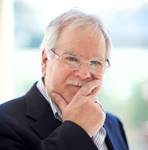Expert Advice with Michael Yardney.
Of course, what he says is true – back then America was the place to be. But where is the best place to be born in 2019 and how can you decide this?
One place to start looking is the Economic Intelligence Unit’s Best Countries to be Born Report, which attempts to measure “which country will provide the best opportunities for a healthy, safe and prosperous life in the years ahead” by considering factors such as GDP per capita, life expectancy, unemployment, and gender equality.
The last time this was reported the answer was Switzerland, followed in very close second place by Australia. The Economist found that being rich helped with people’s happiness but was not the only reason for it. Crime, trust in public institutions and the health of family life matter too. According to the 2019 World Happiness Report there are three important contributors to happiness – relationships, money and health.
This report, which found Finland to be the happiest country in the world (Australia is 11th), agreed that money matters for happiness but only up to a point.
Clearly that’s right – money is important in those areas of our life where money is important (like paying the bills), and it’s not at all important in other parts of our life. But if you think about it, any problem money can solve isn’t really a problem, is it?
We’re living in the lucky country
If you live in Australia, you’re living in the lucky country right now, and it’s about to get a whole lot better.
Despite all the headlines about the risks posed by high levels of debt and falling property values, the latest Roy Morgan Wealth Report revealed a very positive long-term trend. Australia has performed very strongly over the past decade compared with other OECD nations, particularly in Europe where many nations went backwards over the same period.
Since 2007, net wealth per capita in Australia has increased by 65.1%. Not surprisingly, roughly half of Australia’s personal wealth is held in the form of owner-occupied housing (49.8%), down slightly from 51.6% in 2007, while superannuation assets make up 24.4% of our wealth.
The wealthiest 10% of Australians with an average net wealth of over $2m (up by $811k from 2007) hold 47.9% of net wealth. The poorest 50% of Australians with an average of $31k (up by $11k) have, despite gains, seen their total share of net wealth fall from 3.9% to 3.7%. The 2019 Global Wealth Migration Review showed that as far as developed countries go, Australia is outperforming the others and is expected to add 80% to private wealth held by individuals in the next decade. It will in the process leapfrog both Germany and the UK in the rankings to be the fi fth-wealthiest nation in terms of private wealth held by individuals. This includes assets like property, cash, equities, and business interests, minus any liabilities.
Our geographic neighbours China (where wealth will grow +120% in the next decade) and India (+180%) will outpace us in private wealth growth, but if we play our cards right we will not only be providing these nations with natural resources but also with education, health and technology. And there is a real opportunity for our tourism industry to fl ourish as we become the playground of a rich new middle class in Asia, just as we were one of the preferred holiday destinations for the Japanese in the 1980s.
Why so glum?
Australians and particularly property investors seem to have lost their mojo. Sure, sentiment is improving, but consumer confidence has been low for some time and many potential property investors are sitting on the sidelines waiting for someone to ring the bell confirming the market has bottomed.
They’re being fed by the media, who in general have forgotten that we’re the lucky country. They forget that as a nation of around 25 million people we punch well above our weight with the world’s 14th largest economy.
If you asked me, I think we should also get bonus points for our low rate of unemployment. While some complain when this creeps up a fraction of a per cent, it’s still around 5%. Compare that to Italy where unemployment is double that of Spain where unemployment is three times our level.
The bottom line
Australians tend to take many things for granted. Yet despite all our challenges, in certain respects times have never been so good for us.
Our economy is in second gear, not in reverse. Our political system is solid, and our banking system is sound. Income levels are at or near historic highs and our life expectancy continues to increase steadily.
We should feel very lucky that we find ourselves in this situation, and naturally, Australia being a great place to live is strongly positive for our housing markets.
Quibblers will, of course, find more holes in my arguments than there are in a chunk of Swiss cheese – there will always be the property pessimists around.
However, the fact is, as Australians we have every reason to be proud of where we live and excited about our future, including the long-term health of our property markets.
..........................................................
 Michael Yardney is CEO of Metropole Property Strategists, which creates wealth for its clients through independent, unbiased property advice and advocacy. He is a best-selling author, one of Australia’s leading experts in wealth creation through property and writes the Property Update blog.
Michael Yardney is CEO of Metropole Property Strategists, which creates wealth for its clients through independent, unbiased property advice and advocacy. He is a best-selling author, one of Australia’s leading experts in wealth creation through property and writes the Property Update blog.
To read more articles by Michael Yardney, click here
Disclaimer: while due care is taken, the viewpoints expressed by contributors do not necessarily reflect the opinions of Your Investment Property.